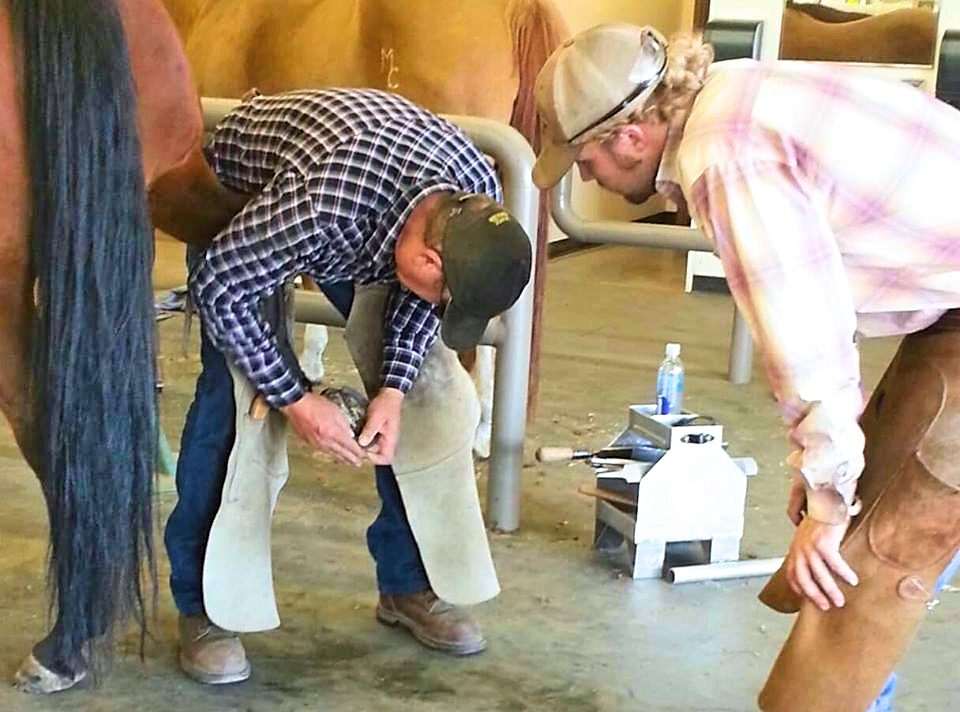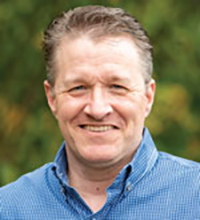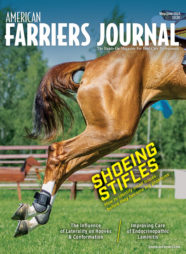After more than 4 decades of training and educating hoof-care students in the Pacific Northwest, Walla Walla Community College is eliminating its Farrier Science Program, and the decision is not sitting well with students, the community and a faculty member.
The program, which began during the 1974-75 academic year, can no longer support itself, says Douglas L. Bayne, vice president of advancement at the Walla Walla, Wash., college.
“It has been a tremendous asset to the college, the community, and the region for many years now, and we know that many people have a vested interest in its success,” Bayne told American Farriers Journal. “The difficulty we find ourselves in now is that however highly regarded it is, the number of students enrolled in the program has been steadily declining for years, and it has now reached a point where the cost of the program is too high to sustain.”
The program, which will end in June, has three students on track to graduate this academic year, and eight total enrolled, he says.
Pictured Above: Walla Walla Community College administrators announced the elimination of the farrier science program when the 2018-19 academic year concludes in June.
Photo: Walla Walla Community College Farrier Science Program
“We are always concerned, for both students and faculty, when very difficult situations are made on continuing programs,” Bayne says. “It’s an extremely unfortunate effect of numerous factors, including the economy and how education is funded in our state. We deeply regret that we have reached this point, but having explored all known ways to maintain the program, we have found no alternatives.”
Students and community members have been critical of the school for not supporting the program by advertising it and its services. However, Bayne disagrees with those suggestions.
“We ran several direct articles in local publications on the program, and used social media to promote the program,” he says. “Also, it is included when we do ‘try a trade’ tours and promotions. Plus, when working with local high school students and community clubs, it is always mentioned. We also produced a video highlighting the program. We have promoted the program in the similar fashion that we promote our other 30 workforce programs, all with only a handful — less than five — staff who market college programs.”
Jeff Engler, who has led the farrier science program for more than 20 years, is “deeply disappointed” not only in the decision, but in the rationale for eliminating it.
“I feel like the administration has twisted the facts to fit their scenario,” the certified journeyman farrier told American Farriers Journal. “I’m disappointed to see that they’re not supporting a 45-year program that’s been putting a lot of kids to work and allowing them to earn an independent living. That’s what workforce education is all about. Our college is slipping away from workforce education and into a liberal arts education, and that’s not in any community college charter that I’m aware of. It deeply saddens me.”
Students who originally enrolled in the 2-year program but only complete the first year by the time it is discontinued will not walk away empty-handed.
“Students will be awarded a 1-year certificate at the end of this academic year to allow them to be ready to enter the work force,” Bayne says.
Although the college has made the decision, students and community members aren’t giving up. They have launched a social media campaign in an attempt to save the program. Halé Adams, whose husband Flint is a student who will be graduating in June, is leading one such effort.
“The Walla Walla Community College Farrier Science Program needs your help,” according to a Facebook post by Adams. “Not only does this personally affect the current students and teachers (Jeff Engler and Davy Jones), it will greatly affect the community members that have come to rely on the program to take care of their horses’ needs.”
Adams and others are asking graduates, community members and friends of the farrier program to petition the college to continue it.
“Students are being encouraged to write letters to the new president in an effort to persuade them to reconsider getting rid of the program,” she writes. “This letter is an attempt to spread the word that the farrier program at WWCC deserves to stay. If the farrier program has benefited you or someone you know in any way, or you feel that it is an asset to the farrier community, please help this program by writing a letter voicing your concerns to Gerald Anhorn, dean of Workforce Education and BAS Programs (gerald.anhorn@wwcc.edu).”
There are about 16,000 horses in the Walla Walla area and 50 farriers servicing the area, according to the Union-Bulletin. Students in the program trim and shoe 800 to 1,000 head each year.









Post a comment
Report Abusive Comment